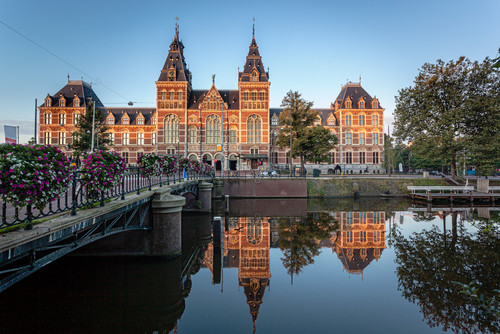Popular Reads
Top Results
Can't find what you're looking for?
View all search resultsPopular Reads
Top Results
Can't find what you're looking for?
View all search resultsLombok treasure among items to be returned by Dutch
The Netherlands has said it would return around 500 cultural objects that were looted from Indonesia during the colonial era, including Lombok treasure plundered by Dutch troops after they massacred hundreds of people on the island in 1894.
Change text size
Gift Premium Articles
to Anyone
T
he Netherlands has said it would return around 500 cultural objects that were looted from Indonesia during the colonial era, including Lombok treasure plundered by Dutch troops after they massacred hundreds of people on the island in 1894.
Following a request from Jakarta last year, the Netherlands will return the famed Lombok treasure, which consists of a collection of 335 gold and silver items.
“The objects were wrongfully brought to the Netherlands during the colonial period, acquired under duress or by looting,” the Dutch government said in a statement.
The art and artifacts are currently housed at the National Museum of World Cultures and the Rijksmuseum.
Indonesia will also regain four statues from the ancient Javanese kingdom of Singasari, a traditional Balinese dagger and 132 modern art pieces from Bali, known as the Pita Maha collection.
Jakarta won’t recover, at least not yet, the remains of the Java Man, the first known fossil of the Homo Erectus species discovered by Dutchman Eugene Dubois during the colonial era.
The Dutch have in the past been reluctant to return the remains.
The transfer of ownership of the objects the Netherlands has agreed to return was scheduled to take place at the National Museum of Ethnology in Leiden on July 10.
The Netherlands is one of several European countries that have been facing growing pressure to return cultural objects that were acquired during colonial rule or through violence and exploitation.
In 2018, France announced its intention to return 26 artworks to Benin that were taken by French troops in 1892. In 2019, Germany agreed to return artifacts to Namibia that were taken during a genocide in the early 20th century.
Gunay Uslu, the Dutch secretary of state for culture and media, decided to return the Indonesian objects based on the recommendations of a committee set up in 2020 to examine claims for the restitution of cultural objects from colonial times.
“This is a historic moment,” Uslu said in the statement.
This was the first time that the Netherlands followed the committee’s recommendation to return items that should never have been brought to the country, she added.
“But more than anything, it’s a moment to look to the future,” she said.
Uslu said this opportunity was also about starting “a period of closer cooperation with Indonesia and Sri Lanka” in fields such as research, presentation and exchange among museums.
The restitution of the objects is the Dutch government’s broader effort to address its colonial legacy and improve its relations with its former colonies in Asia and Africa.
Last month, Prime Minister Mark Rutte formally acknowledged Indonesia’s independence date as Aug. 17, 1945, a first for the former colonial power, which previously insisted that the Southeast Asian archipelago had gained sovereignty in 1949.
Rutte has also apologized for the violence committed by Dutch forces during Indonesia’s struggle for independence.
Earlier this month, Dutch King Willem-Alexander publicly apologized for the Netherlands’ role in profiting from slavery during colonial times, particularly in Suriname and ex-Dutch colonies in the Caribbean.
Jakarta welcomed the Dutch government’s announcement.
The objects’ return is part of a broader agreement between Indonesia and the Netherlands in 1975 on the restitution of cultural heritage that was taken during the colonial period.
That deal, though, faced many obstacles in its implementation, said Sri Margana, a member of the Repatriation Committee under the Indonesian Education, Culture, Research and Technology Ministry.
“The agreement has been resumed in the last two years,” Sri, a professor of history at Gadjah Mada University in Yogyakarta, told BenarNews.“This is progress and Indonesia should be more proactive.”
Indonesia has recently received data on 2,500 items from the Dutch and each item has to be first researched for its provenance, Sri said.
“We are selective because it has to be gradual. We will prioritize those that have important historical value,” he said.
The priority objects, he said, mainly include artifacts from Indonesia’s Hindu period and royal regalia that contain important knowledge on the history of the archipelago.
He said it was a challenge for the National Museum of Indonesia to prepare to receive and store these objects.
Hilmar Farid, the director general of culture at Indonesia’s Education, Culture, Research and Technology Ministry said that there were more collections that Jakarta wanted to reclaim from the Netherlands, including the Java Man.
The Indonesian government had not set a specific timeline for the return of the historical objects, Hilmar said.
“But we hope that after July 10, the process for other collections will be faster because there is already a scheme,” he said.










